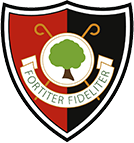Computer Science
| Level | GCSE |
| Exam Board | OCR |
| Website | www.ocr.org.uk |
In Year 11 students will develop their knowledge, skills and understanding of Component 1 – Computing Systems theory. This encompasses areas such as Computer Hardware, Networks, Threats to data, Ethics and Data Representations. Component 2 Computational Thinking and Computer Programming will also be explored carrying on from Year 9. Students will also work on a programming project to enhance their programming skills.
Process
The GCSE Computer Science qualification is split into three components of practical programming, computational thinking and computing fundamentals:
Component 1 - Computer Systems (50% of qualification)
The first component is an exam focused on computer systems covering the physical elements of Computer Science and the associated theory
Component 2 - Computational Thinking, Algorithms and Programming (50% of qualification)
This component is focused on the core theory of computer science and the application of Computer Science principles
Component 3 - Programming Project
This component is the non-exam assessment where candidates will be challenged by a range of exciting and engaging tasks to apply the knowledge and skills they have learned
|
Component Title |
Component Overview |
|
Computer Systems |
|
|
Computation Thinking, Algorithms and Programming |
|
|
Programming Project |
|
Post-16 Choices
Students may progress on to study A-Level Computer Science where they can further develop their computational thinking and programming skill sets.
Computer Science as a subject is looked upon highly by many universities and is highly regarded by Russell Group universities for many of their more academic subjects such as Medicine, Physics and of course Computer Science.
Staff Contact:
Mr L Turner - lee.turner@oxted.thpt.org.uk



